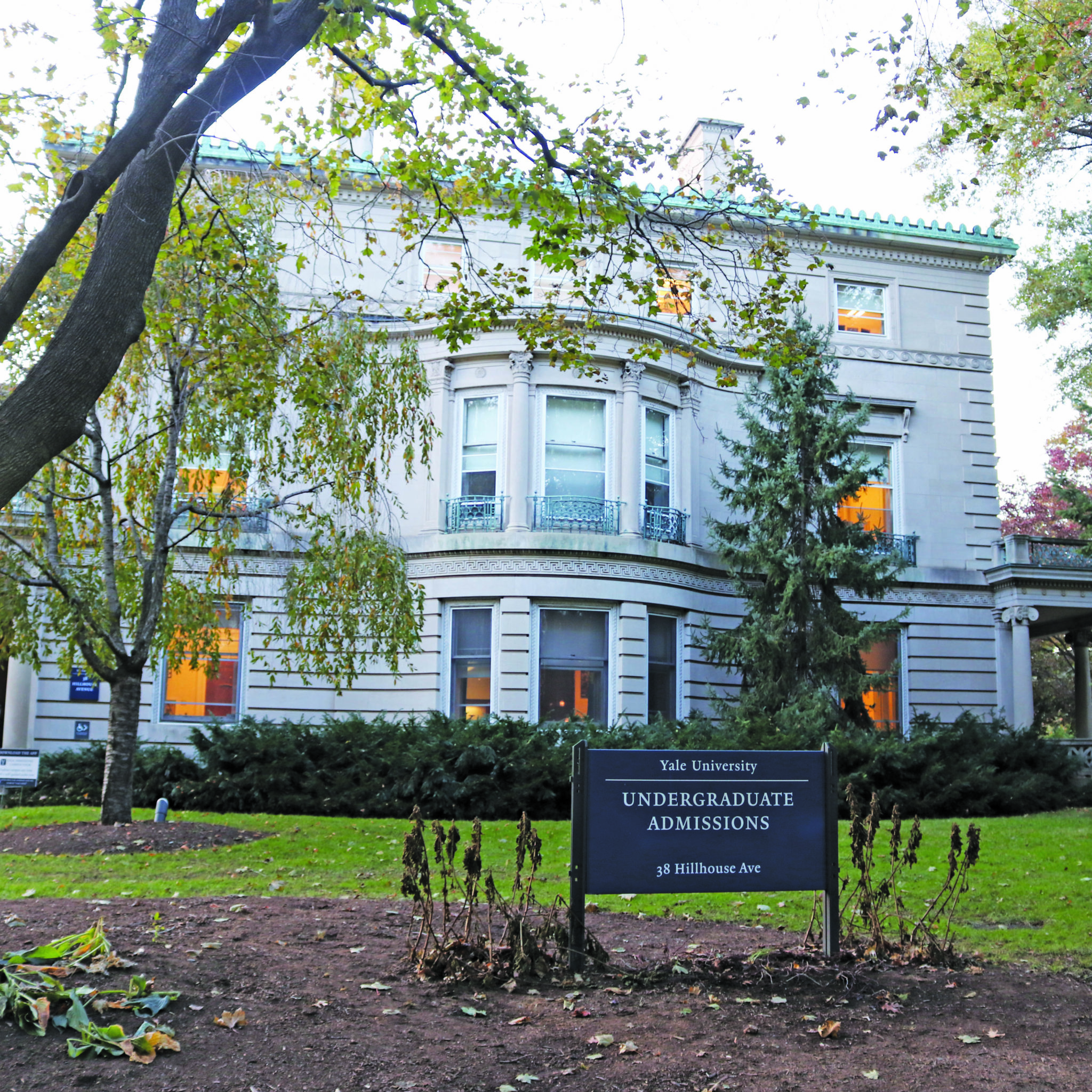
As the affirmative action lawsuit against Harvard continues to capture the national attention, Yale faces its own federal probe into the University’s admissions processes, after a similar group — the Asian American Coalition for Education — filed a complaint against Yale and other schools.
The complaint, obtained by the News on Monday, claims that Yale has a “just for Asians barrier.” It cites a former admissions reader, Kara Miller, who said the University held Asian-Americans to a higher standard throughout the admissions process. The complaint also cites undergraduate enrollment statistics, in which the percentage of Asian-American students oscillated around 16 percent between 1995 and 2014.
But according to data from the Office of Institutional Research, the percentage of accepted Asian-American students at the College has increased between 2003 to 2017. During that period, the percentage jumped from 13.4 to 18.9 percent of admitted students. Asian-American students make up 21.7 percent of the Class of 2022.
The complaint attacked Yale’s self-described “holistic” approach to admissions, in which the Office of Admissions claims to review each application as a “comprehensive picture” of a student, rather than focus on individual test scores, extracurriculars or recommendations.
“While describing the process as ‘holistic,’ Yale … [does] not reveal the inner workings of their admissions procedures; in fact, they are shrouded in secrecy,” the complaint states. “The combination of secrecy with an admissions procedure that considers race as part of a ‘holistic’ evaluation of applicants has resulted in a process that applies negative stereotypes to actively discriminate against Asian-Americans.”
Yale has repeatedly denied allegations that the University discriminates in its admissions processes. In response to Miller’s comments, Dean of Admissions Jeremiah Quinlan reiterated remarks by University President Peter Salovey that affirmed the University’s support of race-conscious admissions. He added that Yale maintains transparency in its admissions processes.
In its complaint against Yale, the coalition alleges that Yale, along with Brown and Dartmouth, discriminates against Asian-Americans through race-conscious admissions processes that disproportionately hurt certain races. The May 2016 complaint, which has been released by the coalition and signed by more than 130 Asian-American groups, accuses the universities of violating the Fourteenth Amendment to the U.S. Constitution by failing to adhere to its “racial neutrality” mandate, which guarantees equal protection under the law. The group also claims that the University violates Title VI of the Civil Rights Act of 1964, which protects against racial discrimination at schools.
“Historically, Asian-Americans have not been a politically influential group and have therefore been ignored,” Yukong Zhao, the president of the Asian-American Coalition for Education, told the News in September. “It is time to stop. Harvard and Yale are just the tip of the iceberg.”
The coalition chose the three schools because Brown and Dartmouth have maintained the lowest admissions rates for Asian-Americans in the Ivy League, and Yale not only has a low admissions rate for the racial group, but it also deletes admissions files for its Law School, according to the complaint. The complaint also states that the percentage of Asian-American students at universities such as Yale has declined due to “negative stereotyping coupled with racial quotas and caps.” The complaint claims that the percentage of Asian-Americans is effectively “capped at 16 percent” nationally. But the College’s statistics have exceeded that figure in six different years since 2003.
While the complaints against Brown and Dartmouth have dropped because of a lack of evidence, the accusation against Yale was picked up by the Department of Justice in April 2018.
Internal University data reveals that the percentage of Asian-American students surpasses the 16 percent benchmark and has increased over the past 15 years.
However, it does mention that the country’s college-aged — between 18 and 21 years old — population of Asian-Americans grew from 2.5 percent to 5.1 percent, from 1995 to 2011. In addition, the file claims that the caliber of Asian-American applicants has only improved over the same time frame. The complaint also mentions an article written by Ron Unz, a publisher of The American Conservative journal, which suggests that the qualifications of Asian American applicants are substantially more impressive than their peers of other races. Unz observed that National Merit Scholarship Semifinalists — “a major indicator of graduating high school students’ academic performance” — were disproportionately Asian-American.
A 2016 Gallup Poll said that 70 percent of Americans support exclusively merit-based admissions to institutions of higher learning.
Skakel McCooey | skakel.mccooey@yale.edu







